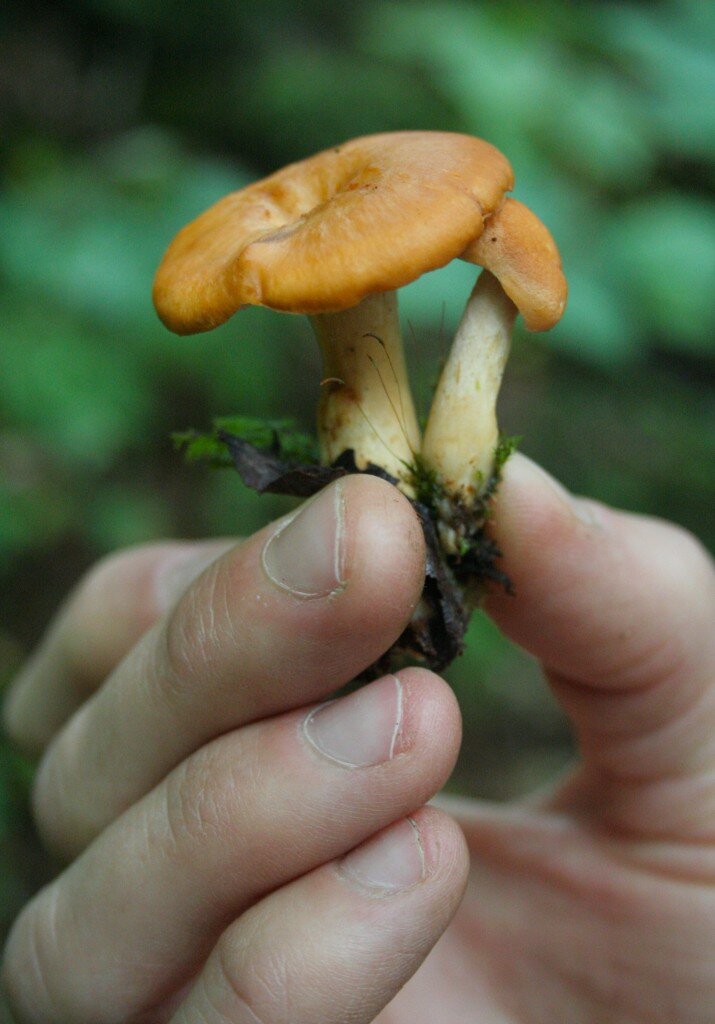Hedgehog Mushroom: The Safer Chanterelle
The cap and toothed underside of hedgehog mushrooms.
The woods are full of teeth right now – not only is lion’s mane starting to ferociously flush, but hedgehogs are popping up along moist riverbeds and streams. Fall has arrived, at least in northern Vermont.
The hedgehog, or sweet tooth, is perhaps the most foolproof to identify of all wild mushrooms. Its yellow to orange cap and fruity odor are reminiscent of its summer-fruiting relative the golden chanterelle, but its tooth-covered underside distinguishes it from potential look-alikes. Beginning foragers often confuse the chanterelle for the poisonous jack-o’-lantern, which has free, parallel gills. The chanterelle, by contrast, has forked ridges on the underside. The hedgehog’s teeth and appearance are particularly distinctive, but the novice should still be prudent and confirm ID with 100% certainty.
As you scour the woods for splashes of yellow, you might also come across another fall-fruiting chanterelle relative – the smooth chanterelle, which often associates with oak. Like the hedgehog, the smooth chanterelle tastes every bit as good as its celebrated relative the golden chanterelle. Though not quite as foolproof as the singular hedgehog, the smooth chanterelle’s barely wrinkled underside makes it a better bet than the golden chanterelle for beginners.
Once you understand the fruiting habits of the chanterelle clade, you are unlikely to confuse any of them for jacks. Chanterelles and hedgehogs are mycorrhizal fungi that may produce solitary fruit or pairs of two, often arranged in loosely scattered bands or arcs that go far beyond the host tree. I have seen massive chanterelle and hedgehog flushes, but the fruiting habit is more like a loose gold-threaded carpet than a dense clump. If you see a dense clump or tight cluster of “chanterelles,” do not eat unless you are seeking a violent 36-hour purge!
The singular hedgehog offers a slightly earthier, smokier take on the chanterelle’s trademark apricot flavor. The bigger the specimen the bigger the meal – for example, Hydnum repandum can be as big as a portabella, while Hydnum umbilicatum typically has a quarter-sized cap.
So, fledgling foragers, don’t worry about chanterelles for now. This fall, stick to the unmistakable hedgehog!

